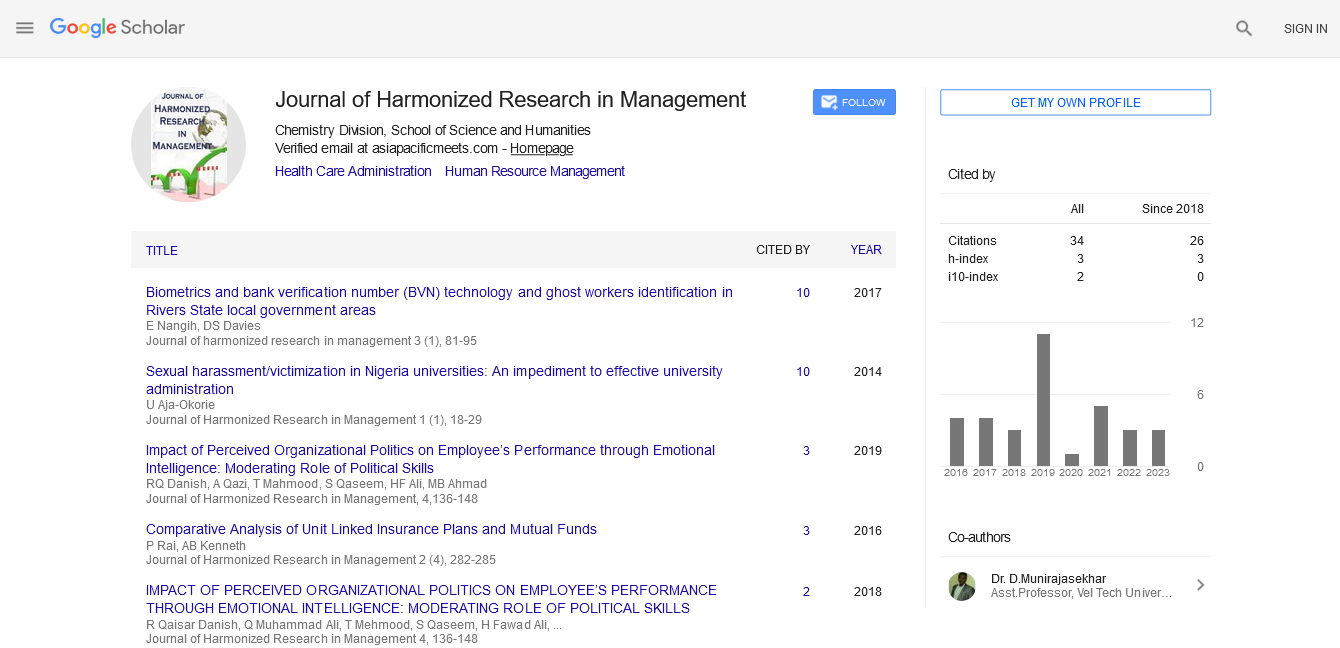MPACT OF PERCEIVED ORGANIZATIONAL POLITICS ON EMPLOYEE?S PERFORMANCE THROUGH EMOTIONAL INTELLIGENCE: MODERATING ROLE OF POLITICAL SKILLS
Abstract
Author(s): Dr. Rizwan Qaiser Danish, Qazi Muhammad Ali, Tayaaba Mehmood, Shumaila Qaseem, Hafiz Fawad Ali and Muhammad Bilal Ahmad
The purpose of this paper was to study the impact of perceived organizational politics on employees' performance through emotional intelligence and it also aimed to evaluate the moderating effect of political skills in education sector, both public and private sector universities of Lahore, Pakistan. In this research, previous literature was critically reviewed regarding perceived organizational politics, employee's performance, political skills and emotional intelligence. The data was collected through self-reported, self-administered questionnaires. 270 questionnaires were distributed among the employees of different educational institutes in Lahore. Out of these, 221 questionnaires were useable and ready for analysis thus making response rate 81%. The convenience sampling technique was used for the collection of data. SPSS 20.0 was used to study the effect of perceived organizational politics on performance of employees. Regression and Correlation techniques were applied which was appropriate. We also used confirmatory factor analysis and structural equation modeling in AMOS 22. Results indicate that EI partially mediates the relationship between politics and performance. On the other hand political skills strengthen the significant positive relationship between politics perception and emotional intelligence. Study suggests the managers to assess the political behavior (which affects the performance of employees) and design EI training to reduce their negative relationship. The study witnessed new empirical insights about the interplay of politics-performance and how EI mediates or PS moderate the relationship

Google Scholar citation report
Citations : 92
Journal of Harmonized Research in Management received 92 citations as per google scholar report









